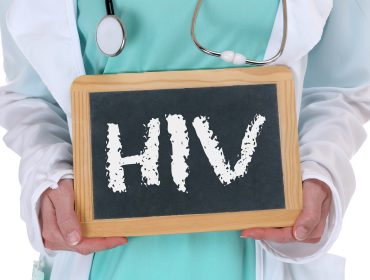How To Use Black Seed Oil For STD
Cure or Scam?
Black Seed Oil HIV
With today’s hook-up culture in full-swing, many people will, at some point, make the decision to get tested for STDs. It is not unusual for a potential sexual partner to ask about your health status and you should feel comfortable enough with your partner to ask about theirs. This doesn’t have to be an awkward conversation. After all, you are about to be as physically close to one another as two human beings can get.
Most STDs can easily be cured with antibiotics but there are still a few with no known cure: Hepatitis B, HPV, Herpes and HIV/ AIDS, which is the most dangerous viral STD. Thanks to advances in modern medicine, HIV is considered a manageable condition and most HIV-positive patients can have long life expectancy.
It is well established that traditional medicine can lower the viral load of an HIV positive patient to undetectable levels, making it virtually impossible for them to infect others. Still, an increasing number of people are turning to alternative medicine and herbal remedies hoping they will succeed where conventional medicine has failed in treating HIV infections. One such herbal medicine is black seed oil or black cumin.
Black seed oil is made from the seed of Nigella Sativa. It’s main bioactive component, thymoquinone, is believed by many to cure illnesses ranging from depression to cancer. The cultivation of Nigella Sativa dates back many centuries, having been used in numerous medicinal traditions. Today, it can be found widely across Asia and the Mediterranean.

Can black seed oil heal STDs such as Chlamydia and HIV?
With millions of infected people refusing pharmaceutical treatment and searching the natural world for a cure, finding the truth can literally be a matter of life and death.
We begin by taking a look at where the idea first originated and examine any additional evidence to support the claim. The first study on the subject, “Nigella Sativa Concoction Induced Sustained Seroreversion in HIV Patients”, was conducted by three scientists, Abdulfatah Adekunle Onifade, Andrew Paul Jewell, and Waheed Adeola Adedeji. It provides a case presentation and proposes that the use of black seed oil may be effective in fighting HIV infection.
The subject, a 46-year old Nigerian man, was HIV positive and had never taken traditional HIV medication. He had been suffering from chronic fever, diarrhea, weight loss and skin lesions. He sought help from an herbal therapist who prescribed him a mixture of 60% black seed oil and 40% honey. He was instructed to take 10 mls of the mixture twice daily for 6 months. By Day 5, the patient’s fever had subsided; by day 7, his diarrhea was gone; by day 20, his lesions had healed. His CD4 count and viral load were routinely monitored and by the 6th month, his CD4 count was normal and his viral load was undetectable. The patient underwent repeated HIV testing on a regular basis for 47 months following the commencement of black seed oil treatment, all of which came back negative with CD4 counts within normal range.
So, does black seed oil cure HIV? It certainly seems to have been the case for the Nigerian patient from our first case study. There is one other known example study on the subject of black seed oil treatment for HIV from the same author and the methodology is nearly identical.
Why are the only studies on black seed oil and its curative properties conducted by the same individual? And why haven’t other doctors investigated this supposed miracle cure and published their own ground-breaking results? From a scientific perspective, both studies have several major flaws. First, any experiment must have the element of repeatability to produce credible results. This means that if you use the same treatment on multiple patients, at least a significant portion of them will have similar results. Repeatability is crucial because it demonstrates cause and effect. In other words, the ability of researchers to repeat an experiment on multiple patients and obtain similar results implies that the findings are directly correlated.
For example, there have been rare cases of HIV positive patients who have gone into spontaneous remission with no treatment at all. Perhaps the Nigerian patients were examples of this phenomenon and the black seed oil was not responsible. Also, one cannot rule out that bias may have skewed the experimental process, compromising the integrity of the results.
A control or placebo group is also crucial to any experiment. There must be a baseline to compare the results. The lack of adherence to the scientific method, combined with the fact that the medical community did not respond in an explosion of research, points to these two studies being more scam than scie
Holistic medicine traditions can be a powerful herbal supplement, including the use of black seed oil and honey whose many health benefits have been widely acknowledged. This includes antioxidant and anti-inflammatory effects, treatment for rheumatoid arthritis, digestive issues, high blood pressure, and even some forms of skin cancer. However, while holistic medicines such as black seed oil may supplement HIV treatment, there is no known cure to date. Antiretroviral therapy (ART), which is the best treatment available today, has improved the way millions of HIV positive patients live their lives. The life expectancy for someone with HIV is now the same as someone without it. It is possible to lower your viral load to undetectable levels and never transmit it.
There are no miracle cures. Using complementary treatments to improve one’s overall health may be beneficial, but there is no evidence that these treatments can treat or cure HIV or other STDS. Also, complementary treatments do not substitute for conventional HIV treatment and medical care.
For people living with HIV or AIDS who are considering the use of complementary medicine, please consult with a healthcare provider to explore the best options.
Medically Reviewed by Kaci Durbin, MD, MBA, FACOG on November 9, 2023
Secure and Confidential
STD testing services
The fastest results possbile - available in 1 to 2 days

Tagged
Categorized As
Author: STD Check Editorial Team
At STDCheck.com, we go to great lengths to ensure quality content. We’re using our own collection of data. It is not bought or made up for “click-bait” purposes. We don’t entice traffic with cheesy graphics or raunchy headlines. Our information is to promote STD testing, educate people, let go of social stigmas, and bring awareness. We also provide a completely confidential atmosphere through private testing. When we produce an article, it is fact-based. We check it with medical advisors that approve it. Our staff consists of doctors and other medical professionals who peer review the content we make available on STDCheck.com. From all over the world, we have sourced the best and the brightest content developers, including medical professionals, marketing engineers, data scientists, content specialists, and media relations.




